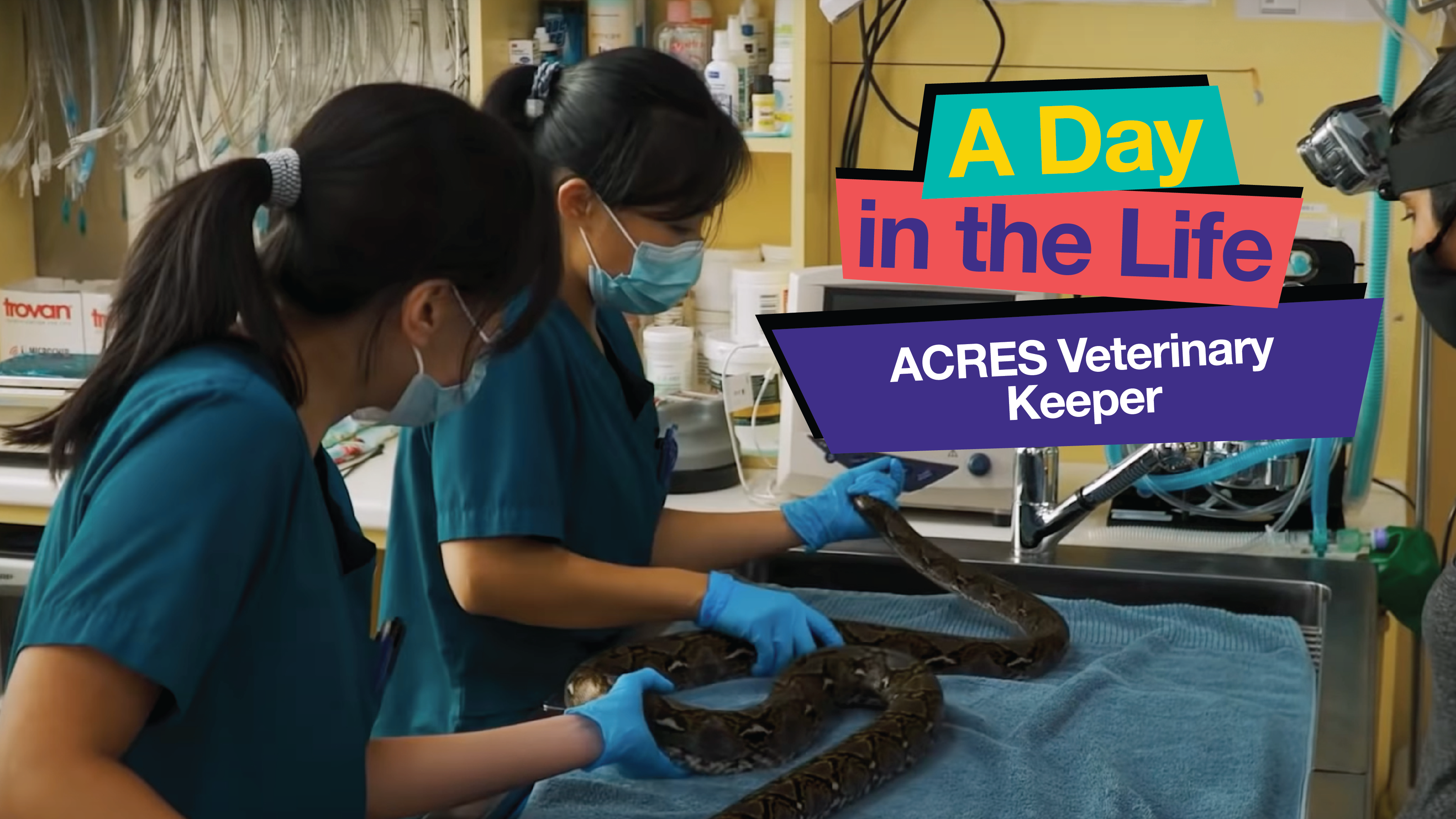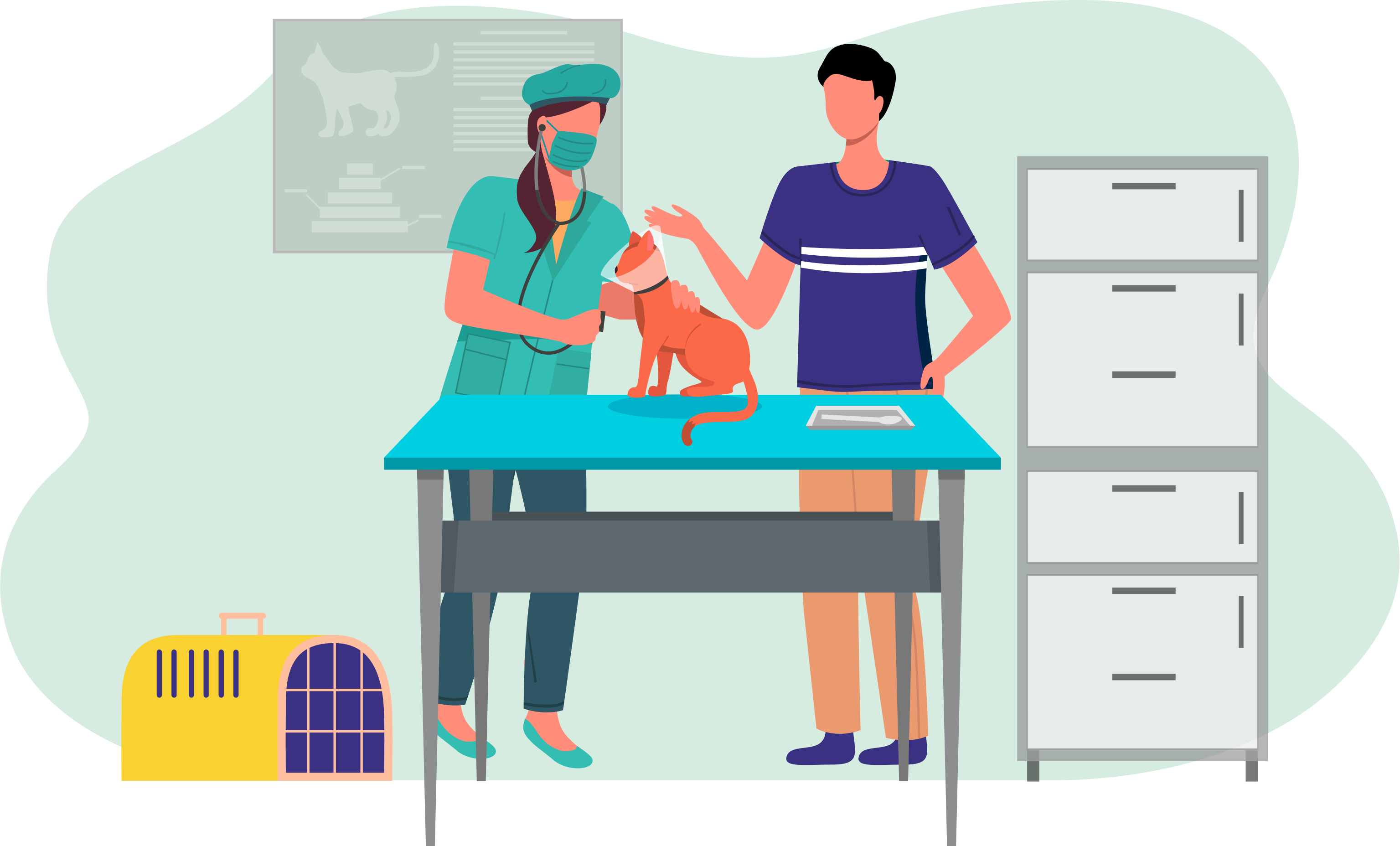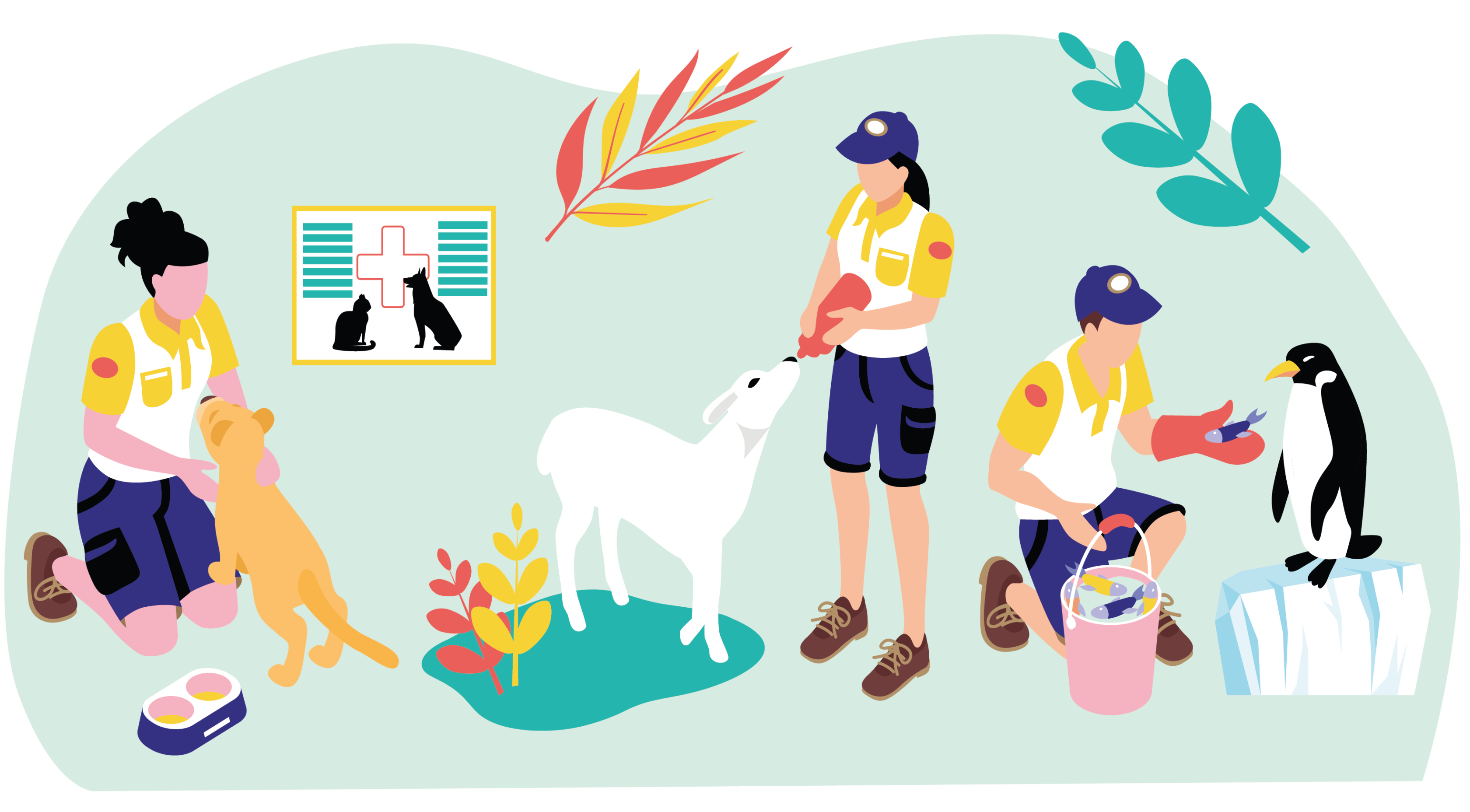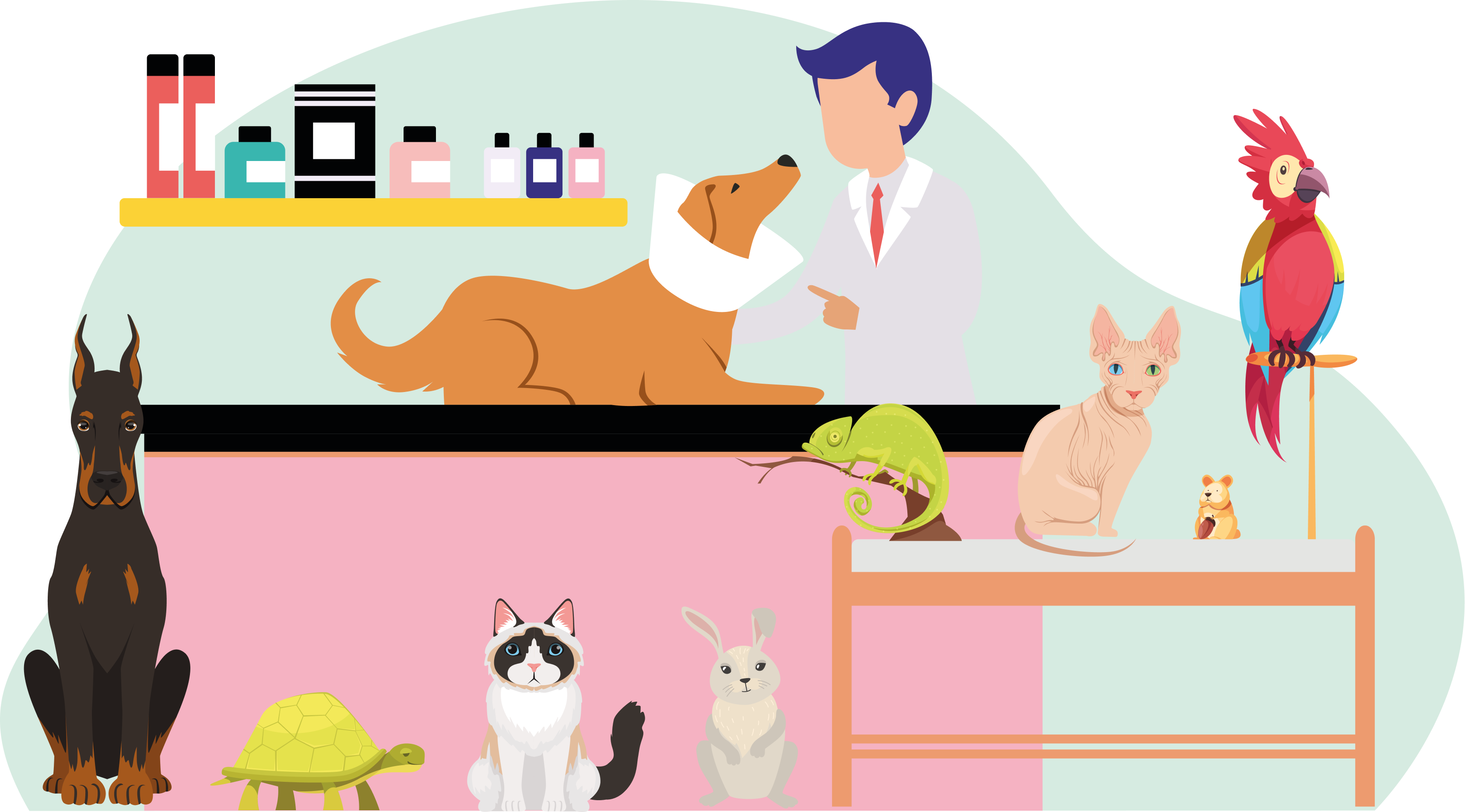
Veterinarians treat and diagnose diseases and injuries of animals, as well as conduct routine examinations to ensure they are healthy.
Veterinarian Job Description
- Administer and prescribe medication to animals.
- Advise clients on health, nutrition, feeding, hygiene, breeding and care of animals.
- Perform autopsies to determine the cause of death in animals.
- Perform routine exams to make sure animals are healthy.
- Perform surgery on animals if required.
- Diagnose and treat animal diseases and injuries.
- Vaccinate animals against various diseases.
- Educate the public on health risks.
- Collaborate with Animal Control for wildlife and stray animal cases.
Note
Remember, Veterinarians' role extends beyond medical care; it's about compassion, understanding, and providing comfort to both animals and their owners. Your dedication and expertise make a significant difference in their lives.
What you should know about Veterinarian jobs in Singapore
Nature of Work
As Veterinarians, you will take on various roles to care for animals! You will be a Surgeon, Dentist, Anaesthetist, Radiologist, and Obstetrician.Key Advice
You must act with empathy and tact when discussing surgery outcomes with pet owners as it will be an emotional moment for them.-
Entry RequirementsEntry Requirements
- Minimally a bachelor's degree in Veterinary Medicine from Veterinary schools accredited by the American Veterinary Medical Association (AVMA) or the Australasian Veterinary Boards Council (AVBC). AVMA-accredited Veterinary schools in the United Kingdom, Australia, New Zealand, and the US issue these degrees.
- The National University of Singapore (NUS) offers an 11-semester concurrent degree programme with The University of Melbourne. You need to gain admission into NUS’s Faculty of Science and declare your intent to major in Life Sciences. You can then apply for the programme within the stipulated time frame and await an interview if shortlisted.
- To practise Veterinary Medicine in Singapore, the law requires you to apply for and get a Veterinary licence from NParks/AVS.
-
Possible PathwayPossible Pathway
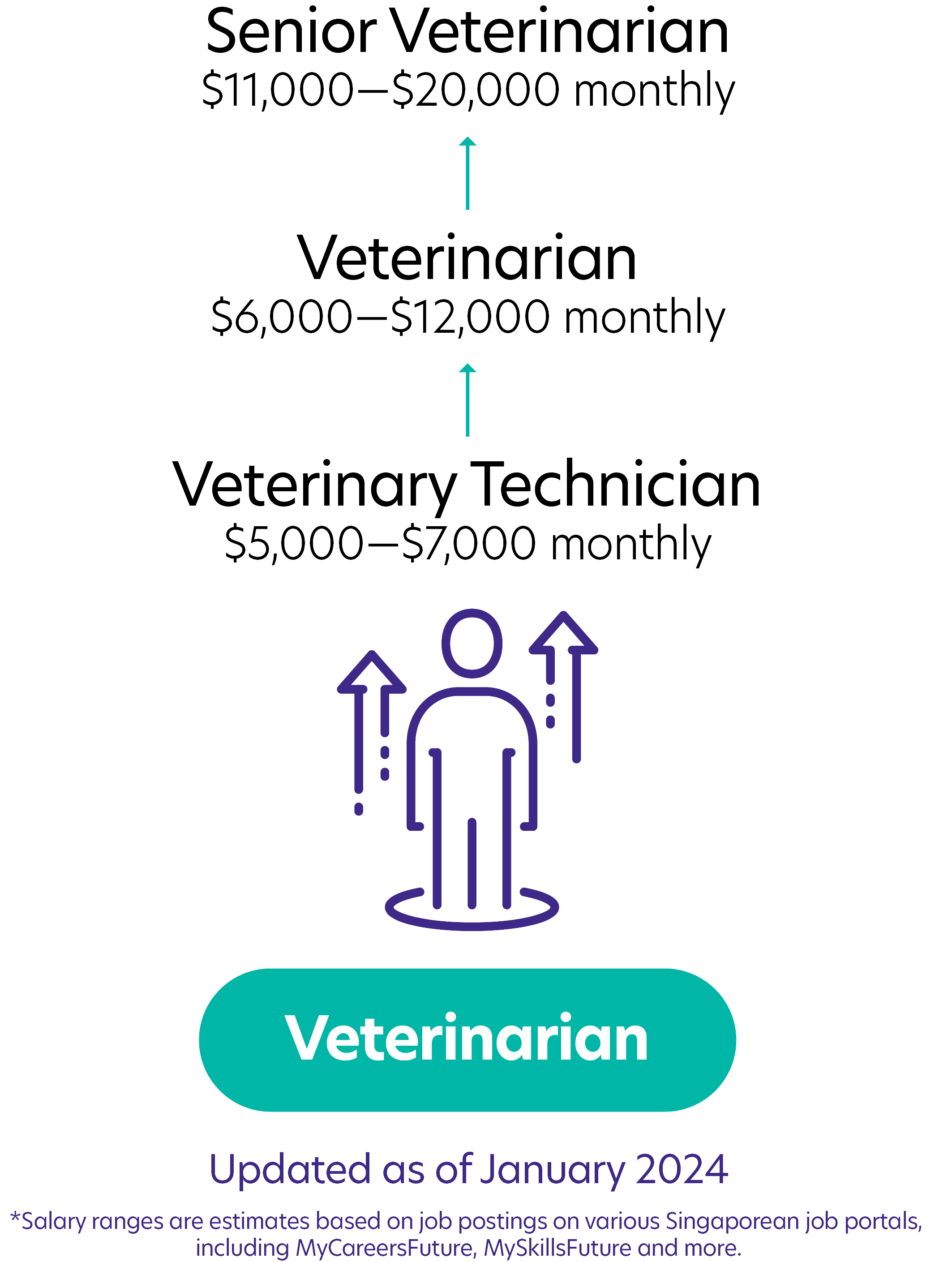
Skills you need to pursue a Veterinarian career in Singapore
Medical Knowledge of Animals
Expert in animal anatomy, diseases, and treatments.Hygiene
Skilled in maintaining cleanliness and disease prevention.Handling Bodily Fluids
Proficient in managing animal fluids safely.Decisiveness
Quick and confident decision-making ability.Flexibility
Adaptable to various situations and schedules.Working Under Pressure
Efficient in stressful and urgent scenarios.
“We .. give animals treatment as and when needed, as well as providing the rehabilitation needed to release them back to the wild, in order to contribute to a balanced eco-system. ”
Xi Yun, Veterinary Keeper
Related Job Roles
Explore Other Programmes
Browse AllYou have bookmarked your first item!
Find it in My Discoveries with insights on your interests!

